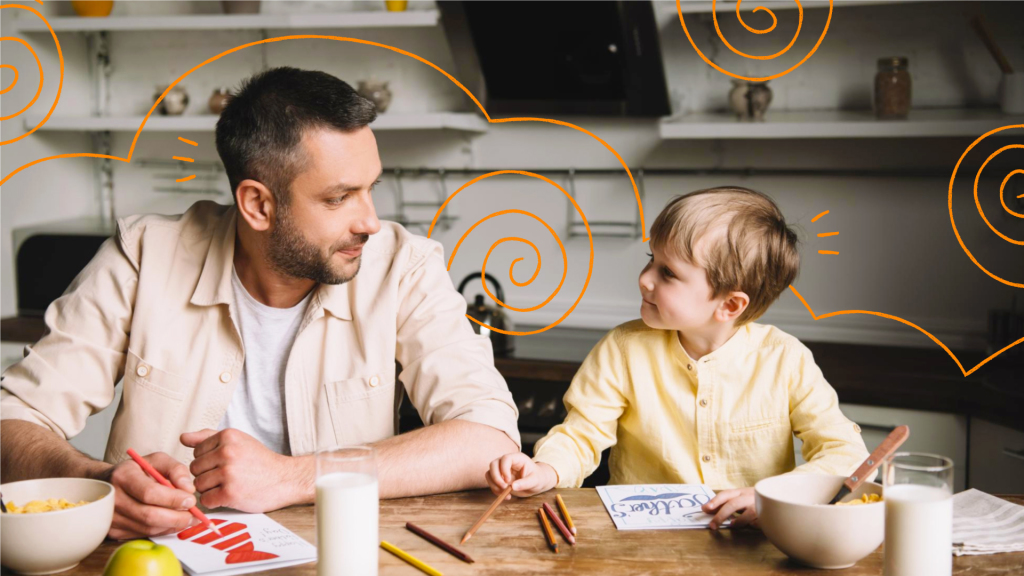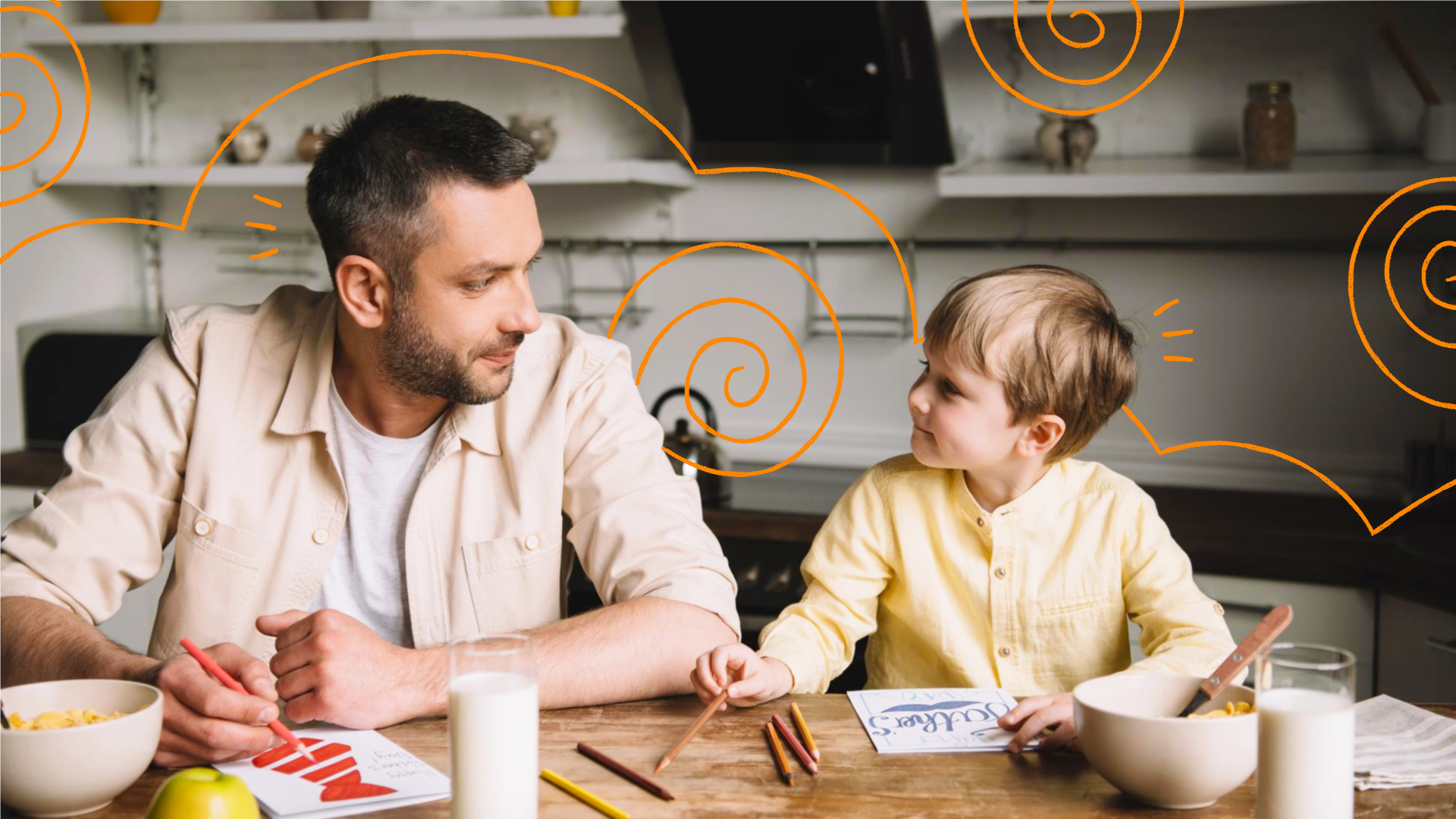
- 3 mins
5 Things to Teach Kids about Big Feelings

Life is full of ‘Big Feelings‘ – both good and bad. A child’s mind processes things quite differently. Emotions can run very high for kids and often jump from one feeling to the next without awareness of what they’re thinking about or what has created the shift in mood.
Saying, “It’s ok to feel what you’re feeling,” can be a great way to start a conversation around complex emotions, even when we don’t know exactly what they mean. Validation of our feelings is important to support feeling accepted and relevant. Especially for children who are nonverbal or learning to use language effectively, engaging with ‘acting it out’ can play a huge part in understanding themselves and others.
A great tool is a song. Music has a way of connecting with us emotionally. For younger kids, the Feelings Song has lyrics and actions – and for older kids, These Are My Feelings is a catchy tune with fun images to open a conversation. Naming feelings and expanding children’s vocabulary beyond ‘bad’ and ‘good’ enables kids to embrace self-awareness. The more aware a child is that they are having an emotional reaction to something, the more likely they are to start identifying and exploring where it came from.
Even grown-ups can struggle with burying emotions that may challenge us – but bottling things up can lead to compounding what we really should address. It can be extra frustrating for kids (especially younger ones) to express their emotions productively and healthily. If your child feels sad that their friend doesn’t want to play with them, talk about ways to manage the feeling of sadness and how they could turn that around. Be sure to encourage them to express how they are feeling at any time. And though it may not be an ideal moment to explore it further, let them know that you hear them.
Create boundaries and set time aside for some undivided attention around openly talking about their experiences with activities like the MadSmartz card Game, Hand2Mind Learn About Feelings Kit or MiniLand EmotiBlocks (and always have some spare card paper to add your own ideas).
Some children have strong, natural empathy and instinctively pick up when someone else is experiencing an emotional response. Other children may have more difficulty understanding emotions outside themselves – especially when they’re younger. Some kids are oblivious to social cues. When it comes to how someone else is feeling, they may not notice unless it’s said out loud. As they grow, they will learn to understand that other people have complex emotions and ways of sharing them – just like they do.
As children get older, they start to understand how their behavior affects other people. They come to realize that everyone has feelings too – even moms and dads! Setting scenarios and role-playing can help with understanding what it is like to be in someone else’s shoes. Get inspiration from Daily Dilemmas. In turn, this can help grown-ups understand what it’s like to be in their shoes too.
In certain situations, some kids react in one way while other children do the opposite. We are all unique in how we process exciting times, sadness, stress or challenges. Try encouraging them to ask how others are feeling. This can open up the lines of communication and encourage them to speak to each other about their feelings. As a family or a group of friends, engage with the kids along with the adults to check in on how they are feeling. There doesn’t have to be a big life event to trigger an open discussion about how everyone is feeling today. Remember that it’s valuable for kids to see that people living alongside them can feel completely different to them.
Tracking emotional experiences is a great way to look back and reflect. Even though things seemed impossible on a ‘very bad day’ last week, it no longer feels quite as hard to deal with. Big concepts – like grief, loss, pain, illness and anger – get better with time. Sometimes, time is the only thing that can truly help heal those struggles. The positive feelings that we seek can’t always be a part of our every day as much as we would like. In these moments, we can learn about being grateful for the good feelings and reflect on them often, looking forward to the next time we feel great! Try an emotion tracker printout, or create your own.